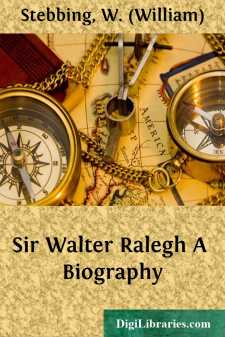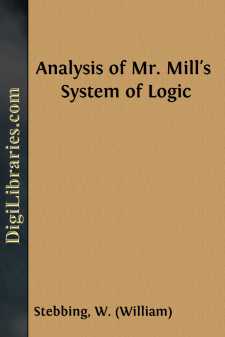Categories
- Antiques & Collectibles 13
- Architecture 36
- Art 48
- Bibles 22
- Biography & Autobiography 813
- Body, Mind & Spirit 142
- Business & Economics 28
- Children's Books 17
- Children's Fiction 14
- Computers 4
- Cooking 94
- Crafts & Hobbies 4
- Drama 346
- Education 46
- Family & Relationships 57
- Fiction 11829
- Games 19
- Gardening 17
- Health & Fitness 34
- History 1377
- House & Home 1
- Humor 147
- Juvenile Fiction 1873
- Juvenile Nonfiction 202
- Language Arts & Disciplines 88
- Law 16
- Literary Collections 686
- Literary Criticism 179
- Mathematics 13
- Medical 41
- Music 40
- Nature 179
- Non-Classifiable 1768
- Performing Arts 7
- Periodicals 1453
- Philosophy 64
- Photography 2
- Poetry 896
- Political Science 203
- Psychology 42
- Reference 154
- Religion 513
- Science 126
- Self-Help 84
- Social Science 81
- Sports & Recreation 34
- Study Aids 3
- Technology & Engineering 59
- Transportation 23
- Travel 463
- True Crime 29
Sir Walter Ralegh A Biography
Categories:
Description:
Excerpt
PREFACE
Students of Ralegh's career cannot complain of a dearth of materials. For thirty-seven years he lived in the full glare of publicity. The social and political literature of more than a generation abounds in allusions to him. He appears and reappears continually in the correspondence of Burleigh, Robert Cecil, Christopher Hatton, Essex, Anthony Bacon, Henry Sidney, Richard Boyle, Ralph Winwood, Dudley Carleton, George Carew, Henry Howard, and King James. His is a very familiar name in the Calendars of Domestic State Papers. It holds its place in the archives of Venice and Simancas. No family muniment room can be explored without traces of him. Successive reports of the Historical Manuscripts Commission testify to the vigilance with which his doings were noted. No personage in two reigns was more a centre for anecdotes and fables. They were eagerly imbibed, treasured, and circulated alike by contemporary, or all but contemporary, statesmen and wits, and by the feeblest scandal-mongers. A list comprising the names of Francis Bacon, Sir John Harington, Sir Robert Naunton, Drummond of Hawthornden, Thomas Fuller, Sir Anthony Welldon, Bishop Goodman, Francis Osborn, Sir Edward Peyton, Sir Henry Wotton, John Aubrey, Sir William Sanderson, David Lloyd, and James Howell, is far from exhausting the number of the very miscellaneous purveyors and chroniclers.
Antiquaries, from the days of John Hooker of Exeter, the continuer of Holinshed, Sir William Pole, Anthony à Wood, and John Prince, to those of Lysons, Polwhele, Isaac D'Israeli, Payne Collier, and Dr. Brushfield, have found boundless hunting-ground in his habits, acts, and motives. Sir John Hawles, Mr. Justice Foster, David Jardine, Lord Campbell, and Spedding have discussed the technical justice of his trials and sentences. No historian, from Camden and de Thou, to Hume, Lingard, Hallam, and Gardiner, has been able to abstain from debating his merits and demerits. From his own age to the present the fascination of his career, and at once the copiousness of information on it, and its mysteries, have attracted a multitude of commentators. His character has been repeatedly analysed by essayists, subtle as Macvey Napier, eloquent as Charles Kingsley. There has been no more favourite theme for biographers. Since the earliest and trivial account compiled by William Winstanley in 1660, followed by the anonymous and tolerably industrious narrative attributed variously to John, Benjamin, and James, Shirley in 1677, and Lewis Theobald's meagre sketch in 1719, a dozen or more lives with larger pretensions to critical research have been printed, by William Oldys in 1736, Thomas Birch in 1751, Arthur Cayley in 1805, Sir Samuel Egerton Brydges in 1813, Mrs. A.T. Thomson in 1830, Patrick Fraser Tytler in 1833, Robert Southey in 1837, Sir Robert Hermann Schomburgk in 1848, C. Whitehead in 1854, S.G. Drake, of Boston, U.S., in 1862, J.A. St. John in 1868, Edward Edwards in the same year, Mrs. Creighton in 1877, and Edmund Gosse in 1886.
Almost every one of this numerous company, down even to bookmaking Winstanley the barber, has shed light, much or little, upon dark recesses. By four, Oldys, Cayley, Tytler, and Edwards, the whole learning of the subject, so far as it was for their respective periods available, must be admitted to have been most diligently accumulated. Yet it will scarcely be denied that there has always been room for a new presentment of Ralegh's personality. That the want has remained unsatisfied after all the efforts made to supply it is to be imputed less to defects in the writers, than to the intrinsic difficulties of the subject. Ralegh's multifarious activity, with the width of the area in which it operated, is itself a disturbing element. It is confusing for a biographer to be required to keep at once independent and in unison the poet, statesman, courtier, schemer, patriot, soldier, sailor, freebooter, discoverer, colonist, castle-builder, historian, philosopher, chemist, prisoner, and visionary. The variety of Ralegh's powers and tendencies, and of their exercise, is the distinctive note of him, and of the epoch which needed, fashioned, and used him. A whole band of faculties stood ready in him at any moment for action. Several generally were at work simultaneously. For the man to be properly visible, he should be shown flashing from more facets than a brilliant....



